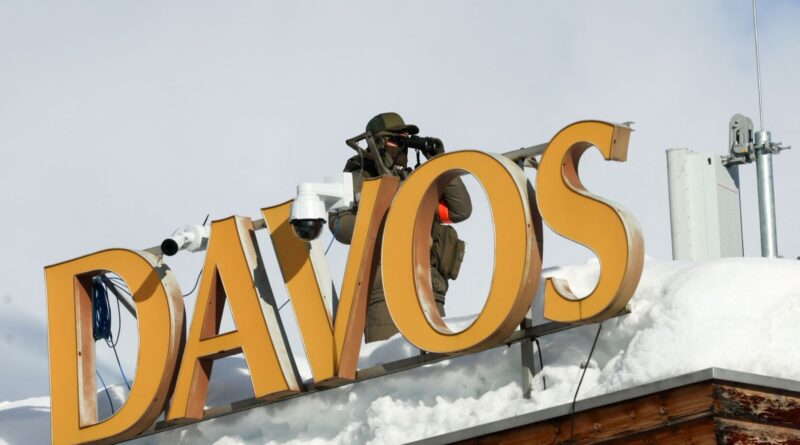Chancellor Rachel Reeves to join celebrities and world leaders at WEF Davos to drum up support for UK economy | Money News
Chancellor Rachel Reeves will travel to the World Economic Forum (WEF) in Davos this week to court potential investors in UK growth projects, joining hundreds of political and economic leaders gathering in the Swiss Alps in the shadow of Donald Trump’s inauguration.
Ms Reeves will join political leaders including German chancellor Olaf Scholz, European Commission President Ursula von der Leyen, Volodymyr Zelensky, the Ukrainian president, and a vice premier of the Chinese Communist Party, with the agenda likely to be set by Mr Trump’s opening gambits in office.
The incoming president had promised the imposition of tariffs on imports, and while they did not feature in the day-one commitments at his inauguration, his second term carries the threat of upending global trade and fundamentally altering America’s security commitments.
Money blog: Pound surges after Trump omission
Mr Trump will address the event remotely at the end of proceedings on Thursday, and before then the WEF will provide a platform for the first public reaction from international political leaders to his plans.
Perhaps as important for the 4,000 or so delegates is the opportunity it provides for private meetings and bilateral conversations.
The chancellor’s focus during a 36-hour visit will be on drumming up investment and reassuring potential partners about the stability of the UK economy and the viability of her plans for growth.
Those plans have been under scrutiny since the turn of the year after fluctuations in debt markets forced the cost of government borrowing up, in turn threatening the fiscal rules Ms Reeves says are central to her credibility.
While largely driven up by international factors, particularly the impact of Mr Trump’s policies, borrowing costs receded at the end of last week after better-than-expected UK inflation figures, easing the short-term political pressure.
What’s on the agenda?
Ms Reeves does not feel she has anything to apologise for following the bumpy start to 2025, but Davos offers her an opportunity to make the case publicly and privately for her plans, with the hope of securing some tangible investment commitments.
She will meet leading financiers convened by JP Morgan and its chief executive Jamie Dimon, investors including the chief executive of OTTP, a leading Canadian pension fund, and address the country strategic dialogue, a private meeting of more than 80 executives, and attend a lunch arranged by business lobby group the CBI.
She will also give a round of interviews to international media outlets in which she will stress her plans to stabilise the economy, reform public services, and begin the structural supply-side reforms she believes are fundamental to encouraging growth.
She will not be alone in seeking to leverage the unique convening power of the annual meeting to her advantage. More than 50 heads of state and as many finance ministers will be in Davos, drawn by the presence of three times as many chief executives and chairs of major companies, corporations and wealth funds.
While public sessions will be dominated by discussion of current opportunities and challenges, including the ubiquitous AI, privately the event offers the 4,000 delegates a chance to speed-date with their peers.
David Beckham and fashion designer Diane von Furstenberg will lend a little celebrity to an event that remains overwhelmingly earnest and self-assured.
Now in its 54th year, the WEF has been a crucible for the principles of globalisation and the liberal economic consensus, which maintains that only open markets and cooperation can deliver profit, prosperity and social justice.
Its immodest mission, set out by founder Klaus Schwab and featuring on the merchandise handed to participants, remains “committed to improving the state of the world”.
Not on the agenda is the question of whether the annual gathering of the billionaire class – Davos’ private jet traffic is notorious- has achieved that goal.


